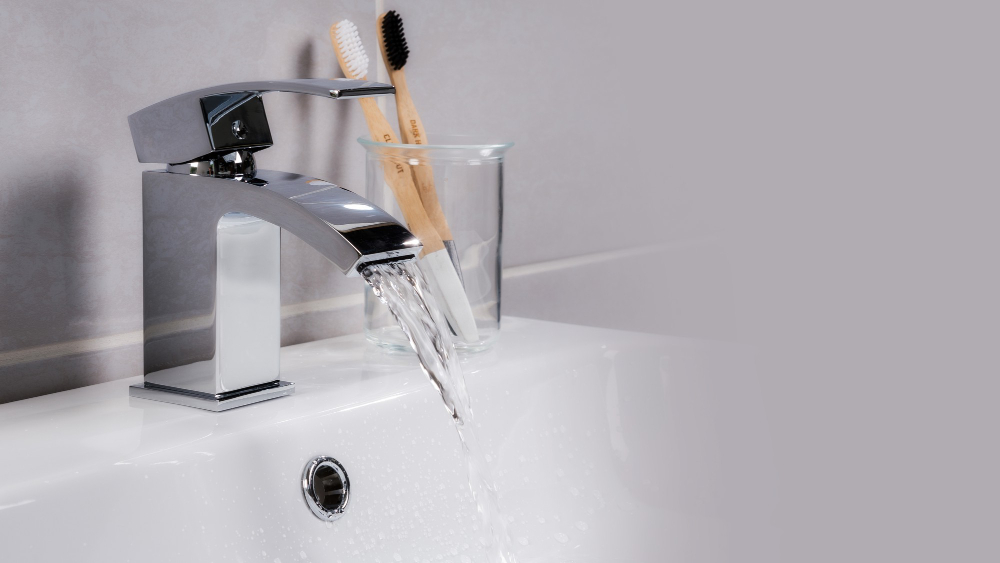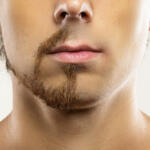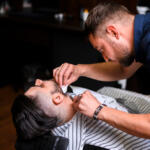
As a seasoned grooming enthusiast and a regular contributor to multiple grooming publications, I’ve come to understand that shaving is more than just a daily routine—it’s an art form with its own set of challenges and nuances. One such complexity that often goes unnoticed is the impact of water quality on your shaving experience. Specifically, hard water can transform your shaving routine from a relaxing ritual into an uphill battle.
In this article, we’ll delve into the intricacies of hard water shaving. You’ll gain insights into what hard water is, its effects on shaving, and proven strategies to mitigate these issues and achieve a smooth, close shave every time.
Understanding Hard Water
Hard water is marked by an elevated concentration of dissolved minerals—predominantly calcium and magnesium. These minerals can originate naturally in water sources or be the aftermath of human activities such as agriculture and industrial procedures.
While hard water may appear harmless, it can trigger a plethora of household issues, ranging from unsightly mineral deposits on appliances to compromised efficiency of soaps and detergents, and even potential skin irritation. But the impact doesn’t stop there; hard water can pose distinctive challenges to your shaving routine.
The Struggle with Lather
A luxurious lather is more than just the hallmark of a great shaving experience. It also serves as a protective layer between your skin and the razor blade, facilitating a smooth glide and reducing irritation. However, hard water can be a formidable adversary to a good lather.
Here’s why: hard water minerals and soap undergo a reaction that forms insoluble compounds, colloquially known as “soap scum”. This process impairs the soap’s ability to generate a stable foam, often resulting in a thin, inconsistent lather. The implication? Increased razor drag, heightened friction, and a greater chance of nicks and cuts.
Razor Maintenance: Battling Dull Blades and Clogs
Your razor, the linchpin of a close shave, isn’t immune to the effects of hard water. Mineral accumulation on razor blades can cause dulling and clogging, thus hampering the razor’s cutting efficiency. Dull blades demand more pressure, which can lead to discomfort and skin irritation.
Furthermore, razors clogged with minerals fall short in hair removal efficiency, necessitating multiple passes over the same area—a direct ticket to razor burn. Regular cleaning and maintenance of your razor are therefore paramount to mitigating these effects and ensuring a comfortable shave.
Overcoming Hard Water Shaving Challenges: Practical Tips
Notwithstanding the complications of hard water, a seamless shaving experience is well within reach. The following practical strategies can help you surmount these obstacles:
- Shaving Cream for Hard Water: Seek out shaving creams and gels specifically formulated to perform optimally in hard water. These products contain ingredients that neutralize the effects of minerals and bolster lathering. Look for labels indicating “hard water compatibility” or “for use with hard water.”
- Showerhead Filter: Installing a filter on your showerhead can minimize the mineral content in your shower water, thereby softening it. Filters leverage technologies like ion exchange or activated carbon to achieve this.
- Vinegar Razor Soak: Immerse your razor in a solution of equal parts white vinegar and water for 10-15 minutes. This natural method effectively dissolves mineral buildup on your razor blades. Don’t forget to rinse thoroughly and air dry afterward.
- Pre-Shave Oil: A pre-shave oil not only hydrates and shields your skin but also curbs friction during shaving. It’s particularly beneficial when shaving with hard water, as it forms a barrier between your skin and the minerals.
- Distilled Water: Consider using distilled water to wet your shaving brush and whip up your lather. Being free of minerals and impurities, distilled water won’t meddle with your lathering process.
Long-Term Water Softening Solutions: A Comparison
Looking to nip the hard water problem in the bud? Below is a comparison of various water-softening solutions, complete with their pros and cons:
- Salt-Based Water Softener
- Pros: Effectively removes minerals; softens water
- Cons: Requires regular salt replenishment; not ideal for sodium-restricted diets
- Showerhead Filter
- Pros: Easy to install; affordable
- Cons: Only softens shower water
- Reverse Osmosis System
- Pros: Offers high-quality water purification
- Cons: Expensive; professional installation needed
- Magnetic Water Conditioner
- Pros: Easy to install; maintenance-free
- Cons: May not be as effective as other options
- Water Descaler System
- Pros: Prevents mineral buildup in pipes
- Cons: Doesn’t remove minerals from water
Wrapping It Up
Shaving with hard water certainly has its share of hurdles, but equipped with the right knowledge and strategies, you can conquer these challenges for a flawless shave every time. By grasping how hard water impacts lathering and razor performance, and by embracing the practical solutions presented in this guide, you can savor your grooming routine, turning what was once an ordeal into a satisfying experience. The path to a perfect shave may start with something as basic as understanding your water, but it ends with a heightened shaving experience that leaves you looking and feeling your best.
Last update on 2024-05-01 / Affiliate links / Images from Amazon Product Advertising API
Affiliate Disclosure: This post contains affiliate links, which means I may receive a small commission, at no extra cost to you, if you make a purchase using these links.

Jay Kang
Just because i'm asian does not mean I don't need shaving. I always wanted to grow a beard when I was young, now I need to shave because hair growth for me is a problem. I'm going through what every man will and has gone through before.





